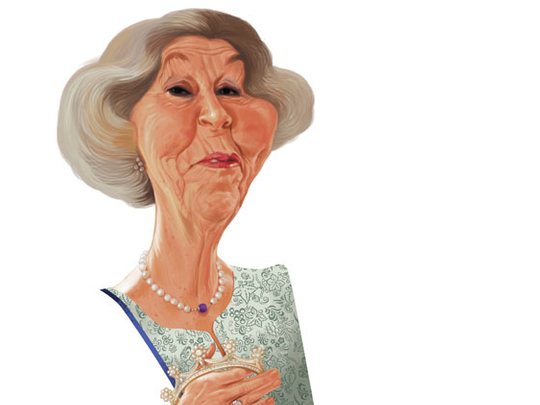
It is said in the Netherlands that if the Dutch lived in Ireland they could feed the world — and if the Irish lived in the Netherlands, they would drown within a week!
It’s not so much a xenophobic statement as it is the reality that the Dutch are probably the most pragmatic people in the world. Who else could turn a land that mostly sits below sea level into the most productive in agricultural terms per hectare globally?
And when it comes to social programmes, the Dutch are equally pragmatic. Who else would leave free bicycles on street corners so you can use them as you wish? It’s an easy way to deal with too much street traffic. Street prostitution is licensed — the oldest profession in the world is not going away, so you might as well deal with it.
And when the Netherlands’ monarch, Queen Beatrix announced on Tuesday that she intended to abdicate on April 30, there was hardly an eyebrow raised in the nation of nearly 17 million. No constitutional crisis, no tabloid frenzy, no great shakes — just a quiet acceptance that the monarch had done her bit for the past 32 years and was retiring to a quieter life. (You can’t but begin to imagine what would be the reaction in Britain if Queen Elizabeth made such a statement in a televised address to the nation.)
Queen Beatrix turned 75 on Thursday and was simply following in the footsteps of her mother, Juliana, who abdicated when she was 71.
The Dutch have always held their monarchy in high regard. The House of Orange-Nassau has ruled over the kingdom since the early 19th century when Napoleon Bonaparte and his Grand Army got their comeuppance at the Battle of Waterloo.
Since the Second World War, though, the monarchy’s powers are largely ceremonial. Interestingly enough, Queen Beatrix spent her early years growing up in Canada. The Dutch Royal Family had been evacuated from Holland as the Nazis goose-stepped through on their way from Berlin to Paris, and spent the war in Ottawa.
During those dark days of occupation, where Dutch food was shipped to Germany and the population in the polders was left to starve — some survived by eating tulip bulbs — the Dutch Royal Family were held as a beacon of hope and a symbol of freedom.
The young Princess Beatrix became the personification of the future, that the people could endure, and that one day she would again rule from the palace in The Hague over a Netherlands that was free from tyranny. When the war ended and the House of Orange-Nassau was restored, it was Beatrix’ grandmother, Wilhelmina, who set the precedent for early retirement in 1948. By then, she was 68.
Under the Dutch Constitution, the powers of the monarchy are limited to that of a consultative role. Given the fragmentation of Dutch politics and the inclination for small parties to be represented in parliament, Beatrix played a role in facilitating talks between coalition partners in the search for national governments. But the parties themselves do the horse-trading — the monarchy is, after all, above politics.
When you read Dutch newspapers — even the raciest tabloids — the members of the Dutch monarchy simply don’t fill column inches as is the case in London and the House of Windsor. They are ordinary citizens and are treated as such, with their daily activities ignored. A law also makes it a crime to insult the monarch, but given Beatrix’ charming and open disposition, it’s a law that not needed.
Sadly, though, recent tragic events surrounding the royal family have made headlines.
Beatrix’ second son, Prince Johan Frisco, remains in a coma for the past year, having suffered a severe head injury while swept away in an avalanche.
And in 2010, a deranged man drove his car at people watching a parade on Queen’s Day — killing eight of them as they waited for Beatrix to pass.
Her eldest son, Prince Willem-Alexander, will assume the title of king. When the 45-year-old takes the reins, it will be the first time the Dutch will have a male head of state since Willem III died in 1890. Willem-Alexander’s wife, Maxima, is a former Argentine investment banker with glamorous good looks.
Together, they have three children while the crown prince is a trained pilot and an expert in water management, which is a plus when the land he will nominally rule over mostly sits below sea level!









